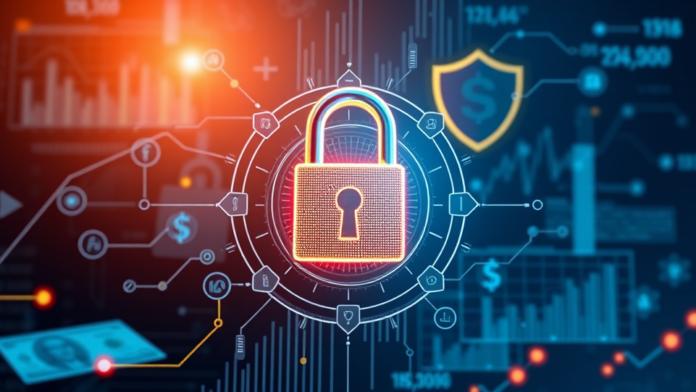The Importance of Cybersecurity in the Financial Sector
In the financial sector, cybersecurity is crucial for protecting sensitive data. Financial institutions handle vast amounts of personal and transactional information . This makes them prime targets for cybercriminals. He must understand the implications of a data breach. Such incidents can lead to significant financial losses and reputational damage. It is alarming how quickly trust can erode. Moreover, regulatory compliance requires robust cybersecurity measures. He should prioritize risk management strategies. Effective cybersecurity not only safeguards assets but also enhances customer confidence. Trust is essential in finance.
Overview of Common Cyber Threats
Here are 10 trending article titles for a financial website based on the latest news and analysis of financial trends: No input data
Types of Cyber Threats Facing Financial Institutions
Phishing Attacks and Social Engineering
Phishing attacks are prevalent in the financial sector. These attacks often involve deceptive emails or messages. He must recognize the signs of such threats. Social engineering techniques manipulate individuals into revealing sensitive information. This can lead to unauthorized access to accounts. It is concerning how easily trust can be exploited. Common tactics include impersonating trusted entities. He should always verify the source before responding. Awareness is key to prevention. Simple precautions can make a significant difference.
Malware and Ransomware Risks
Malware poses significant risks to financial institutions. This software can infiltrate systems and compromise data integrity. He must be vigilant against such threats. Ransomware specifically encrypts files, demanding payment for access. This can disrupt operations and lead to financial losses. It is alarming how quickly systems can be affected. Regular backups and security protocols are essential. He should prioritize cybersecurity measures. Prevention is always better than recovery.
Best Practices for Personal Cybersecurity
Creating Strong Passwords and Authentication Methods
Creating strong passwords is essential for cybersecurity. Weak passwords can be easily compromised by attackers. He should use a mix of letters, numbers, and symbols. This complexity makes unauthorized access more difficult. Additionally, employing two-factor authentication adds an extra layer of security. It is reassuring to experience that extra protection exists. Regularly updating passwords is also crucial. He must not reuse old passwords. Simple changes can significantly enhance security.
Regular Software Updates and Security Patches
Regular software updates are vital for maintaining cybersecurity. These updates often include security patches that fix vulnerabilities. He must prioritize installing these updates promptly. Delaying updates can expose systems to potential threats. Additionally, outdated software can lead to compatibility issues. It is frustrating when systems fail to function properly. By keeping software current, he enhances overall security posture. This proactive approach can prevent costly breaches. Simple actions can lead to significant protection.
Protecting Your Financial Assets
Monitoring Your Accounts for Unusual Activity
Monitoring accounts for unusual activity is essential for financial security. Regularly reviewing transactions helps identify unauthorized charges. He should set up alerts for significant transactions. This proactive measure can prevent potential fraud. Additionally, scrutinizing account statements can reveal discrepancies. It is alarming how quickly unauthorized access can occur. By maintaining vigilance, he can protect his assets effectively. Simple checks can lead to early detection. Awareness is key in safeguarding finances.
Utilizing Security Tools and Services
Utilizing security tools and services is crucial for protecting financial assets. He should consider employing antivirus software and firewalls. These tools help prevent unauthorized access to sensitive information. Additionally, using encryption for data storage enhances security. It is essential to safeguard personal and financial data. Regularly updating these tools ensures they remain effective. He must also explore identity theft protection services. These services monitor for suspicious activity. Awareness of available resources is vital for security. Simple measures can significantly reduce risks.
The Role of Financial Institutions in Cybersecurity
Implementing Robust Security Protocols
Implementing robust security protocols is essential for financial institutions. These protocols protect sensitive customer data from cyber threats. He must ensure that encryption methods are in place. This adds a layer of security to transactions. Regular security audits help identify vulnerabilities. It is crucial to address weaknesses promptly. Additionally, employee training on cybersecurity best practices is vital. He sgould foster a culture of security awareness. Simple actions can prevent significant breaches.
Educating Customers on Cybersecurity Awareness
Educating customers on cybersecurity awareness is vital for financial institutions. They must provide resources and training to enhance understanding. This includes information on recognizing phishing attempts and secure practices. He should encourage customers to use strong passwords. Regular communication about emerging threats is essential. It is alarming how quickly scams evolve. By fostering awareness, institutions can reduce risks. Simple education can empower customers significantly. Awareness leads to better security practices.
Conclusion: Staying Ahead of Cyber Threats
Future Trends in Cybersecurity for Finance
Future trends in cybersecurity for finance will focus on advanced technologies. Artificial intelligence and machine learning will enhance threat detection. He must adapt to these evolving tools. Additionally, blockchain technology may improve transaction security. It is exciting to see these innovations. Regulatory compliance will also become more stringent. Financial institutions should prepare for increased oversight. By staying informed, he can mitigate risks effectively. Proactive measures are essential for long-term security.
Taking Proactive Steps to Protect Your Assets
Taking proactive steps to protect assets is essential in today’s digital landscape. Regularly reviewing financial accounts helps identify suspicious activity. He should also implement strong security measures. This includes using two-factor authentication for added protection. It is crucial to stay informed about emerging threats. Knowledge is power in cybersecurity. Additionally, educating oneself on best practices can prevent breaches. Simple actions can lead to significant security improvements. Awareness is key to safeguarding assets.

